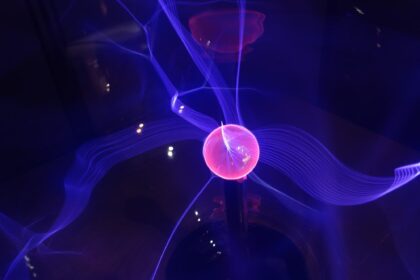In the labyrinthine world of academic writing, each country possesses its own set of rules, its own unique code to decipher. For international students embarking on the journey of thesis writing in Germany, understanding and adhering to the academic conventions is akin to unlocking a complex puzzle. Just as a skilled navigator requires a map to traverse unfamiliar terrain, so too do students require guidance in navigating the intricacies of German thesis writing.
Imagine yourself as a traveler in a foreign land, equipped with only your intellect and determination. As you delve into the depths of academic inquiry, you encounter a myriad of challenges—from linguistic nuances to cultural expectations. However, fear not, for there exists a beacon of light amidst the darkness: resources like https://ghostwriting-seminararbeit.com/ provide invaluable assistance to German students seeking support in their academic endeavors.
In this article, we embark on a journey together—a journey to demystify the secrets of German thesis writing. Drawing upon insights from experts and seasoned scholars, we will uncover the foundational principles, linguistic intricacies, and cultural nuances that shape the landscape of academic writing in Germany. By the end of our exploration, you will be equipped not only with knowledge but also with practical strategies to navigate this challenging terrain with confidence and proficiency. So, let us embark on this adventure together, as we crack the code and unravel the mysteries of German thesis writing.
Unveiling the Foundations: Key Components of a German Thesis
In the grand tapestry of academic writing, a German thesis stands as a testament to meticulous research, rigorous analysis, and scholarly discourse. To embark on the journey of thesis writing in Germany is to navigate through a structured framework, where each component plays a crucial role in shaping the narrative of inquiry. Let us unravel the foundations of a German thesis, exploring the key components that form its structural backbone:
Introduction: The Gateway to Inquiry
- At the threshold of academic exploration lies the introduction, a gateway through which readers are invited into the realm of scholarly discourse.
- Here, the researcher sets the stage, delineating the scope, significance, and objectives of the study.
- The introduction serves as a roadmap, guiding readers through the labyrinth of ideas and laying the groundwork for subsequent chapters.
Literature Review: Mapping the Scholarly Landscape
- Like a cartographer mapping uncharted territories, the literature review surveys the scholarly landscape, tracing the contours of existing knowledge and identifying gaps for exploration.
- Through a systematic review of relevant literature, the researcher contextualizes their study within the broader academic discourse, establishing credibility and relevance.
- This critical analysis serves as the cornerstone of the thesis, providing a solid foundation upon which new insights and contributions can be built.
Methodology: The Blueprint of Inquiry
- With precision akin to an architect drafting blueprints, the methodology section outlines the framework for inquiry, detailing the research design, methods, and procedures employed.
- Transparency and rigor are paramount, as researchers meticulously delineate their approach, ensuring reproducibility and reliability.
- Whether employing qualitative, quantitative, or mixed methods, clarity and coherence are essential, allowing readers to evaluate the validity and robustness of the study.
Results: Unveiling the Findings
- As the curtain rises on the stage of inquiry, the results section unveils the findings of the study, presenting empirical evidence and insights gleaned from analysis.
- Here, researchers showcase their discoveries, employing tables, figures, and descriptive narratives to elucidate key findings and patterns.
- Precision and conciseness are paramount, as researchers strive to communicate their results with clarity and objectivity, avoiding interpretation or speculation.
Discussion: Interpretation and Implications
- In the arena of scholarly discourse, the discussion section serves as a forum for interpretation, analysis, and reflection.
- Here, researchers engage in a critical dialogue with their findings, contextualizing them within the broader theoretical framework and addressing implications for theory, practice, and future research.
- Rigorous analysis, nuanced interpretation, and thoughtful reflection are hallmarks of this section, as researchers seek to contribute meaningfully to their field of study.
In unraveling the foundations of a German thesis, we uncover not merely a structural framework, but a testament to scholarly rigor, intellectual inquiry, and academic excellence. As researchers embark on their own quest for knowledge, may they heed
the lessons gleaned from this exploration, navigating with precision and purpose as they chart the uncharted territories of academic inquiry.
Cracking the Linguistic Code: Language Considerations in German Thesis Writing
Within the realm of German thesis writing, language serves as both a tool and a barrier, shaping the discourse and influencing the reception of scholarly work. As international students navigate the linguistic landscape of academic writing in Germany, they encounter a multitude of considerations and challenges, from mastering the intricacies of German grammar to adapting to the formal tone and conventions of scholarly discourse.
At the heart of the linguistic code lies the imperative of linguistic proficiency. While many German universities offer programs and courses in English, a solid command of the German language is often indispensable for engaging with the academic community and accessing resources. From reading seminal texts to communicating with peers and professors, fluency in German opens doors to a wealth of opportunities and enriches the academic experience.
Moreover, language proficiency extends beyond mere comprehension to encompass the art of expression. In the context of thesis writing, students must not only understand complex academic concepts but also articulate their ideas with clarity, precision, and eloquence. This requires not only a mastery of vocabulary and grammar but also an appreciation for the nuances of academic style and register.
Central to the linguistic code is the use of formal language and academic terminology. Unlike informal conversation or casual writing, academic discourse demands a level of formality and precision that may be unfamiliar to non-native speakers. From the use of passive voice to the avoidance of colloquialisms, adhering to the conventions of academic language is essential for conveying authority and credibility in scholarly writing.
Furthermore, students must navigate the intricacies of disciplinary jargon and specialized terminology specific to their field of study. Whether in the humanities, natural sciences, or social sciences, each discipline possesses its own lexicon and conventions, which students must master in order to communicate effectively with their peers and contribute meaningfully to their academic discourse.
In addition to linguistic proficiency and formal language, students must also grapple with the cultural dimensions of academic writing in Germany. Language is not merely a means of communication but also a reflection of culture, values, and norms. In the context of thesis writing, students must navigate cultural expectations regarding academic rigor, critical thinking, and intellectual autonomy, while also respecting the conventions of academic etiquette and citation practices.
In conclusion, mastering the linguistic code is an essential aspect of thesis writing in Germany, requiring not only linguistic proficiency but also an understanding of the cultural dimensions of academic discourse. By honing their language skills, students can unlock the full potential of their academic inquiry, engaging with the scholarly community and making meaningful contributions to their field of study.
Navigating Cultural Expectations: Understanding Academic Conventions in German Universities

Embarking on an academic journey in Germany is not merely a matter of mastering the language and content; it’s also about navigating the intricate web of cultural expectations embedded within the academic landscape. German universities boast a rich tradition of intellectual rigor, critical inquiry, and scholarly excellence, shaped by centuries of academic tradition and cultural heritage. As international students immerse themselves in this dynamic environment, they encounter a myriad of cultural nuances and conventions that shape the norms and expectations of academic life.
One of the defining features of academic culture in Germany is the emphasis on precision and thoroughness. German scholarship is renowned for its meticulous attention to detail, methodological rigor, and exhaustive analysis. From meticulously crafted research proposals to comprehensive literature reviews, German students are expected to demonstrate a depth of knowledge and a commitment to excellence that is unparalleled in many other academic contexts.
Moreover, German academia places a premium on intellectual autonomy and critical thinking. Students are encouraged to question established theories, challenge conventional wisdom, and engage in spirited debate with their peers and professors. This culture of intellectual inquiry fosters a dynamic and vibrant academic community, where diverse perspectives and innovative ideas are celebrated and encouraged.
Another hallmark of academic culture in Germany is the emphasis on collaboration and interdisciplinary dialogue. German universities are renowned for their vibrant research communities, where scholars from diverse disciplines come together to tackle complex problems and pursue groundbreaking research. Whether through interdisciplinary seminars, collaborative research projects, or interdisciplinary study programs, German students have ample opportunities to engage with scholars from a wide range of academic backgrounds and perspectives.
Furthermore, German academia places a strong emphasis on academic integrity and ethical conduct. Plagiarism and academic dishonesty are considered serious offenses, and students are expected to adhere to the highest standards of academic ethics and professionalism. This commitment to integrity not only ensures the credibility and reliability of academic research but also fosters a culture of trust and mutual respect within the academic community.
In navigating these cultural expectations, international students may encounter challenges and opportunities for growth. By embracing the rich diversity of perspectives and approaches within German academia, students can broaden their horizons, expand their intellectual toolkit, and enrich their academic experience. Ultimately, by understanding and embracing the cultural conventions of German universities, international students can thrive in this vibrant and dynamic academic environment, making meaningful contributions to their field of study and forging lifelong connections with scholars from around the world.
Strategies for Success: Practical Tips and Resources
Embarking on the journey of thesis writing in Germany can be both exhilarating and daunting for international students. However, with careful planning, perseverance, and the right resources, navigating the challenges of academic writing in a foreign country can become a rewarding and enriching experience. Here are some practical tips and resources to help international students succeed in their thesis writing endeavors:
Time Management:
- Develop a realistic timeline for your thesis project, breaking down tasks into manageable chunks.
- Utilize time management tools and techniques such as Pomodoro Technique or Kanban boards to stay organized and focused.
Seek Mentorship:
- Reach out to faculty members, advisors, or senior students for guidance and mentorship.
- Join academic support groups or workshops offered by your university to connect with peers and receive feedback on your work.
Utilize Academic Support Services:
- Take advantage of writing centers, language labs, and academic support services offered by your university.
- Seek assistance from librarians or research specialists to navigate academic databases and locate relevant resources for your thesis.
Improve Language Skills:
- Enroll in language courses or language exchange programs to improve your German language proficiency.
- Practice academic writing in German by writing drafts, seeking feedback, and revising your work to enhance clarity and coherence.
Cultivate Research Skills:
- Hone your research skills by familiarizing yourself with academic databases, citation styles, and research methodologies.
- Attend workshops or seminars on research methods and literature review techniques offered by your university or academic associations.
Stay Organized:
- Keep track of your research materials, notes, and drafts using digital or physical organizational tools such as reference managers or notebooks.
- Create an outline or structure for your thesis to maintain coherence and ensure that all aspects of your research are adequately addressed.
Balance Work and Life:
- Prioritize self-care and maintain a healthy work-life balance by scheduling regular breaks, engaging in hobbies, and spending time with friends and family.
- Recognize the importance of rest and relaxation in maintaining productivity and well-being throughout the thesis writing process.
Stay Persistent and Flexible:
- Recognize that thesis writing is a journey filled with ups and downs, setbacks, and breakthroughs.
- Stay persistent in your efforts, remain open to feedback and constructive criticism, and adapt your approach as needed to overcome challenges and achieve your goals.
By implementing these strategies and tapping into available resources, international students can navigate the complexities of thesis writing in Germany with confidence and competence. Remember that success is not solely measured by the final product but also by the growth, learning, and personal development achieved along the way.
Conclusion
In conclusion, the journey of “Cracking the Code: Understanding Academic Conventions in German Thesis Writing” has been a voyage of discovery, insight, and growth for international students navigating the intricate landscape of German academia.
Through our exploration, we have unveiled the foundational principles, linguistic intricacies, cultural dimensions, and practical strategies that shape the landscape of thesis writing in Germany. From deciphering the structural components of a German thesis to navigating the nuances of language and culture, international students have gained valuable insights and resources to guide them on their academic journey.
As we reflect on our exploration, it becomes evident that success in German thesis writing is not merely a matter of mastering the technical aspects of academic writing but also embracing the cultural and intellectual ethos of German academia. By honing their language skills, cultivating critical thinking, seeking mentorship, and utilizing academic support services, international students can thrive in this vibrant and dynamic academic environment, making meaningful contributions to their field of study and forging lifelong connections with scholars from around the world.
As the curtain falls on our exploration, let us carry forward the lessons learned, the friendships forged, and the discoveries made, as we continue our quest for knowledge and academic excellence in the rich tapestry of German academia. With determination, perseverance, and a spirit of inquiry, international students can crack the code of German thesis writing and embark on a journey of intellectual discovery that transcends borders and enriches lives.





